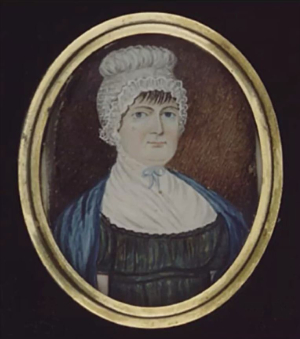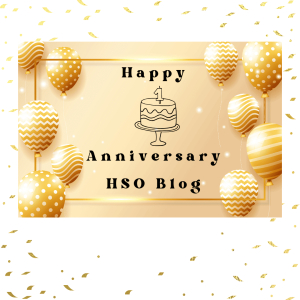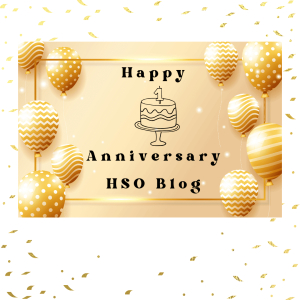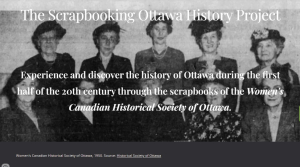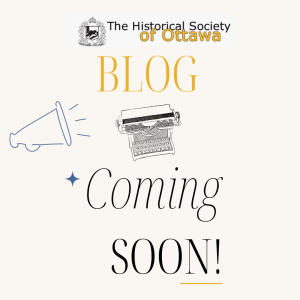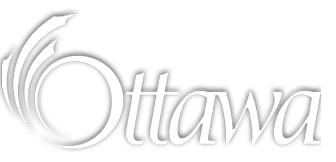Voyager dans le temps avec la Société historique d'Ottawa
The French version of the series “Time Travelling” will being airing on May 14, 2025 on Rogers TV 23.
Timeslots will be as follows:
- Dominique Lajoie “Château Laurier: Si les murs pouvaient parler” – May 14, 2025
- Rick Henderson “Philemon Wright et son village” – May 21, 2025
Wednesday 9:00pm (mercredi 21h) *original timeslot*
Thursday 12:30pm (jeudi 12h30)
Thursday 8:30pm (jeudi 20h30)
Friday 4:00pm (vendredi 16h)
Monday 11:00am (lundi 11h)
Both shows will be available on the TV Rogers YouTube site at a later date.
Time Travelling with the Historical Society of Ottawa
Beginning on April 2, 2025, subscribers to Rogers TV will be able to enjoy a fascinating new weekly series, “Time Travelling with the Historical Society of Ottawa”, a collaboration between Rogers TV and the HSO.
Each week's new episode will air Wednesday @ 7:30 p.m. and then be rebroadcast Friday at 5:30 p.m. and the following Tuesday @ 10:00 a.m. on Rogers TV Channel 22.
Here is the schedule of episodes and our featured presenters:
Wednesday, April 2 @ 7:30 p.m.
"Go Exploring" with Paul Weber
Wednesday, April 9 @ 7:30 p.m.
"Glimpses of Forgotten Ottawa" with Kevin Ballantyne
Wednesday, April 16 @ 7:30 p.m.
"Philemon Wright and his town" with Rick Henderson
Wednesday, April 23 @ 7:30 p.m.
"Gord Atkinson: Ottawa's Oldest Teenager" with Peter Atkinson
Wednesday, April 30 @ 7:30 p.m.
"Bytown 1847: Elisabeth Bruyere and the Irish Famine Refugees" with Michael McBane
Wednesday, May 7 @ 7:30 p.m.
"Ottawa's Golden Age of Rock and Roll" with Jim Hurcomb
Wednesday, May 14 @ 7:30 p.m.
"The Changing World of Photography" with Paul Couvrette
Wednesday, May 21 @ 7:30pm
"From Steamboats to the NHL: The Cowley Family" with Christine Jackson
Future episodes will feature presentations by Jean-Luc Pilon, Leo Doyle, and Jean-Marie Guerrier.
In addition, a series of French-language episodes have been been recorded to be broadcast on Rogers TV Cable 23.
All episodes were recording last Fall at the Rockcliffe Park pavilion, courtesy of the National Capital Commission.
After initial exclusive broadcast on Rogers TV, the series will be made accessible on the HSO website at a later date.
2025 Recipients
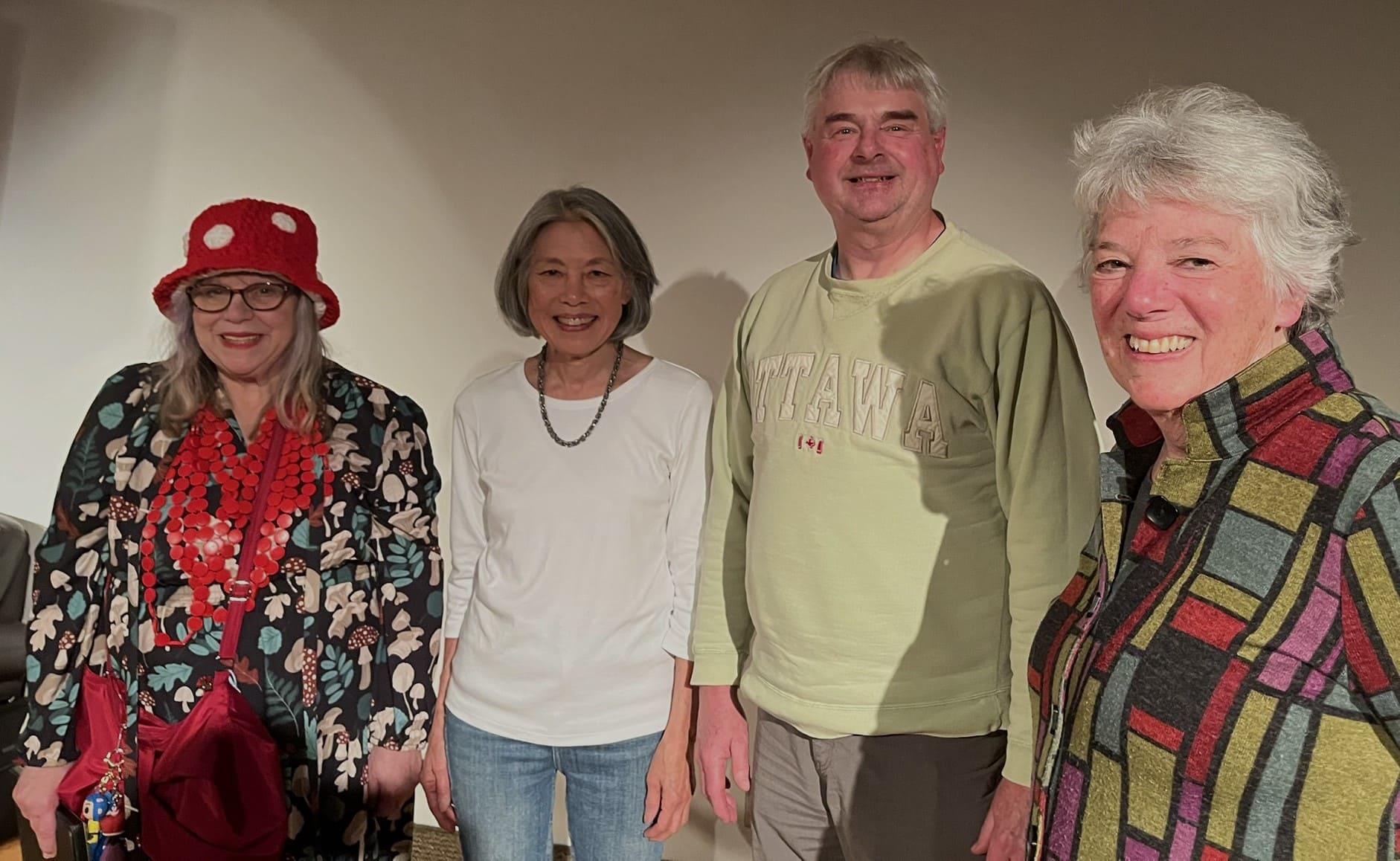 Storyteller Award winners : Linda Seccaspina, Denise Chong and Glenn Clark with Jane Waterston. Photo by Sonja McKay.
Storyteller Award winners : Linda Seccaspina, Denise Chong and Glenn Clark with Jane Waterston. Photo by Sonja McKay.
The HSO François Bregha Storyteller Award is presented each year to individuals in recognition of their outstanding contribution toward increasing awareness of Ottawa area history – the mission of the Historical Society of Ottawa for the past 127 years.
On Saturday, April 26th it was our great pleasure to present the 2025 HSO François Bregha Storyteller Award to the first three of this year’s five esteemed recipients, Linda Seccaspina, Denise Chong and Glenn Clark.
We were again privileged to welcome Jane Waterston to present the award named in honour of her late husband, former HSO member François Bregha, who was also, posthumously in 2022, the inaugural recipient of this award.
Congratulations to Linda, Denise and Glenn… and many thanks for your wonderful work!
The Story of Us - The History of the Women’s Canadian Historical Society of Ottawa
On the evening of Wednesday, October 9, 2024, the Historical Society of Ottawa delved into its own past with an exploration of the early decades of the Women’s Canadian Historical Society of Ottawa (WCHSO) and the remarkable women who formed and ran it. We were pleased to again welcome Connie Wren-Gunn, who reprised the session she had presented at our 125th Birthday Bash in the summer of 2023. Connie is a professional historian, being the Director, Content & Interpretative Products for Know History. She holds an M.A. in History from Carleton University and is an accomplished writer and passionate researcher.
Connie explained that the women who founded the WCHSO were primarily women of privilege, from prominent local families, who were also responsible for the formation and operation of many other organizations and charities within Ottawa. Women had few rights in the late 1890s, and a number of organizations were created by women, such as the National Council of Women and the International Order of the Daughters of the Empire, which were focused on improving the position of women in society. Although a number of working women were involved in the formation of the WCHSO, they did not remain active with the organization for long. This may be due, in part, to the WCHSO holding its meetings on weekday afternoons.
Connie pointed out that the women who formed the WCHSO were trailblazers, giving women a voice they had never had before. Although some 20 Historical Societies were formed in Canada between 1869 and 1900, the WCHSO was the only one formed and managed entirely by women. It was also the first Canadian Historical Society to send a delegate to the annual meeting of the American Historical Association, Jenny Simpson, in 1909.
Connie then gave us the story of the founding of the WCHSO starting from June, 1898 when thirty-one women met at the home of Matilda Edgar, the wife of the Speaker of the House of Commons. Their goal was to promote and preserve the history of Ottawa through publications and through the collection of artifacts. This collection eventually grew into the Bytown Museum, which opened in October 1917. The WCHSO was run as a formal organization, with a constitution, bylaws, officers with assigned responsibilities, scheduled meetings and a membership fee, initially 50 cents yearly, which was not raised until the 1930s. They also published a detailed annual report, which they began after about a decade of operation. The formality of the organization was an important point, as they realized that it would be too easy for them to be perceived simply as a group of ladies, sitting around, sipping tea and chatting. They were serious in what they were doing and wanted everyone to understand it.
Connie went on to describe some of the activities undertaken by the WCHSO in their early years. These included fundraising, money always being in short supply, the creation of scrapbooks based on local news clippings, see the link below, the staging of two major exhibitions of local artifacts and the lobbying of governments for the preservation of historic sites and the creation of plaques and monuments to honour significant events, such as Confederation, and individuals, chief among these being Lieutenant-Colonel John By.
She then told us a bit about Transactions, a journal published by the WCHSO, which consisted of 10 volumes appearing between 1901 and 1928, which contained over 130 essays. Most of these papers were written by WCHSO members, and although some were based on archival documents, most were based on previously published books, or recorded the memories of local families. Much of the focus of the papers was on early life in Bytown and the Ottawa valley, reflecting the hardships faced and overcome by the early settlers.
Connie explained that in the early part of the 20th century, universities began introducing mandatory methodologies for historical research for their graduate students requiring original research based solely on written archival documents. This professionalization of history discounted the work of passionate amateurs, such as the women of the WCHSO. Perhaps in response to the growing criticism from professional historians, the WCHSO modified their content of Transactions, reducing them in size and increasing the number of articles written by men. Connie pointed out that in the volume published in 1922, seven of the ten articles were written by men. The WCHSO, perhaps as a further response, shifted its focus away from its writings to the collection and preservation of artifacts in the Bytown Museum.
In 1956 the Women’s Canadian Historical Society of Ottawa became simply the Historical Society of Ottawa.
A full recording of Connie’s session can be viewed at: The Story of Us - The (Women's Canadian) Historical Society of Ottawa Est. 1898.
Connie’s Master’s Thesis can be read in full at: Etd | The Women's Canadian Historical Society of Ottawa: Constructing Public Memory and Preserving History in a Changing City, 1898-1932 | ID: j67314577 | Hyrax
The work performed by the 4th year Digital History class of the University of Ottawa on the scrapbooks created by the WCHSO can be viewed at: Ottawa U Scrapbooking Ottawa History - The Historical Society of Ottawa
The Historical Society of Ottawa has a page on its website dedicated to the WCHSO, which can be viewed at: WCHSO - The Historical Society of Ottawa
The Story of Us - The Women's Canadian Historical Society of Ottawa Established 1898
Happy Anniversary HSO Blog!
The HSO Blog has been live for a year! We launched this platform as an extension of our objective to preserve and increase public knowledge of the history of Ottawa, including its people and places. Our vision was to create a space where the history of the Ottawa area could be shared through an engaging blog platform.
Thank you to all who have contributed and shared their interest in the blog!
Be sure to catch up on past posts and other great HSO publications found under the publications section of our website.
As always, if you are interested in writing for the blog, please get in contact with us by emailing hso.blog@historicalsocietyottawa.ca. We are always excited to see what fascinating stories make their way to us and can’t wait to see what this year brings!
Happy Anniversary HSO Blog!
The HSO Blog has been live for a year! We launched this platform as an extension of our objective to preserve and increase public knowledge of the history of Ottawa, including its people and places. Our vision was to create a space where the history of the Ottawa area could be shared through an engaging blog platform.
Thank you to all who have contributed and shared their interest in the blog!
Be sure to catch up on past posts and other great HSO publications found under the publications section of our website.
As always, if you are interested in writing for the blog, please get in contact with us by emailing hso.blog@historicalsocietyottawa.ca. We are always excited to see what fascinating stories make their way to us and can’t wait to see what this year brings!
Ottawa U Scrapbooking Ottawa History
On the morning of December 2nd, 2024, eight members of the Historical Society of Ottawa attended the final presentation of the HIS4135 Canadian Digital History Course at the University of Ottawa, The class had taken on the project of digitizing several of the scrapbooks created by our founders, the Women’s Canadian Historical Society of Ottawa, (WCHSO), during the first half of the 20th Century. The students would then conduct some analysis of the contents of the scrapbooks. Their professor, Sarah Templier, explained that this project had been intended for a few years previous, but the pandemic shutdown access to the City of Ottawa Archives and so to the scrapbooks. She went on to explain that scrapbooks were selected, in part, on their completeness. Scrapbooks that contained a lot of loose articles just stuck between the pages were not used as they would have required a lot more work to assemble them prior to digitization. There were other scrapbooks, created by individuals and donated to the WCHSO, but these were not investigated, the research being restricted to what the WCHSO, as an organization, selected. Five full scrapbooks were however digitized and are now available online for the first time.
The class was divided into teams of three students, each focussed on a different theme, and not all working with the same digitized scrapbooks. The themes investigated were: Arts and Culture, Prominent People, Women in Sport, Women in the Public Sphere and Military History. There were some general observations common to most groups despite their specific research areas. Many commented that it was interesting to see what each scrapbooker felt was worth preserving. Equally interesting was what was “missing” from the scrapbook. They could not determine if those items we would deem today as “missing” were not collected because they were not covered by the local newspapers at that time, were not considered to be of sufficient significance or not of interest to that particular scrapbooker. It was also noted that although the scrapbooks were generally in date order, there were also cases where it seemed that articles had been placed onto pages where they would fit so as not to waste the space. Many of the scrapbookers dated their items, but the exact source was seldom preserved.. There seems to have been little collected on what we would now call marginalized communities or immigrant communities. The identification of women proved a constant frustration as, in that period, married women were identified as “Mrs. Someone”, with the resulting loss of connection to their former families and accomplishments. All groups displayed their project web pages and discussed how they had integrated additional research, such as photos, videos or sound recordings to enhance the experience of the viewer, and how they had incorporated maps, word clouds and juxta positioning of findings to produce the same effect.
The Arts and Culture team noted that, despite the lack of government funding, there was a lot of activity in and interest in the cultural landscape of Ottawa. There was also a more diverse population represented in the scrapbooks, including frequent references to Jewish theatre. A map of cultural venues was displayed. Also of interest were a number of famous individuals in the field, especially Yousuf Karsh, who were featured.
The Prominent People team discovered that while some people who garner significant mention in the scrapbooks are still well known today, such as Thomas D’Arcy McGee, others are virtually unknown to the digital world. They also found that the scrapbooker held the power to preserve an individual through their collection. As such, relatives and friends of the scrapbooker achieved a higher level of prominence than we might now attribute to them.
The Women in Sport team noted that there were certain sports that society deemed appropriate for women and that it was understood that women should participate in these sports in an appropriate manner. Thus while words such as “strong” and “powerful” would be used to describe male athletes, words such as “graceful” and “elegant” would be used to describe female athletes. The team also revealed the disparity of opportunity afforded to men and women interested in sport. The achievements of Barbara Ann Scott were well covered in the scrapbooks.
The Women in the Public Sphere team looked into where women achieved positions of leadership in the community and how this was reflected in the scrapbooks. Much of this happened in volunteer organizations and Women’s Clubs, such as our own WCHSO. Religious organizations, such as the Catholic Women’s League offered other options. The team highlighted the work of women in the Canadian Red Cross, contrasting their limited role during the First World War, doing fundraising and knitting in Canada, to their more evolved role during the Second World War, which saw women serving in large numbers overseas. The team also noted that the rise of women was not always well received.
The Military History team focussed on three time periods. Scrapbook 2 was primarily focussed on the period immediately following the First World War. The WCHSO scrapbookers collected stories related to demobilization and returning soldiers. Special interest in the 38th Battalion was noted. A few years of the interwar period, 1934/35 and 1937 were remarkable for the almost total lack of information related to the Canadian military, apart from the annual Armistice Day commemoration. This accurately reflected the state of military affairs in Canada at the time. Scrapbook 5 covered the period of 1940/41 and was dominated by the military build-up in Canada and a growing spirit of patriotism and support for the Crown.
The culmination of their project work, along with the five scanned scrapbooks, is now available to the public and can be viewed at: Scrapbooking Ottawa History or to enter into your browser: https://sites.google.com/view/scrapbookingottawahistory/home
The Historical Society of Ottawa would like to thank and congratulate the students for the work they have undertaken on our behalf to make this material more accessible to researchers. One student did caution that although the .pdf versions of the scrapbooks are searchable using Optical Character Recognition (OCR) software tools, these tools are not 100% reliable and may miss occurrences of the text string being searched for.
As a gesture of our appreciation, we will be giving Sarah Templier and each of her students: Gina Aiello, Anthony "Tony" Butticci, Daniel Cantin, Asia Csabi, Kristine Feria, Chenxuan Fu, Émilie Hollingsworth, Malcolm La Prairie, Caleb Ka Yu Lee, Noah Louden, Brennan Macey, Anthony Martimbeault, Emma Penwell, Isabelle Schneider and Ethan Stitt, a one year complimentary membership to the Historical Society of Ottawa. We hope to see you all at our events for many years to come.
Educational Resource List
In 2023 we asked ourselves the question – are there ways the Historical Society of Ottawa can be of assistance to teachers who would like to expand their students knowledge of the Ottawa area’s local history?
To that end, we have assembled an “Educational Resource List” and have made it available on our website. This Educational Resource List consists of more than 30 helpful links to specific stories from Ottawa’s past as well as links to additional resources. The links include short essays, pamphlets and video presentations from our own website, as well as links to third party resources that we strongly recommend. Various resources are suitable for group learning activities and/or independent study assignments.
We are happy to meet with teachers to further explore how we can be of assistance. We can also arrange for speakers to come to your classroom or to arrange walking tours. All free-of-charge. We are a non-profit, all-volunteer organization. It has been the Society's goal (since 1898!) to increase awareness of the Ottawa area’s fascinating history. (See Educational Resource List for full details and contact information.)
We welcome any suggestions you may have for the Educational Resource List. We hope to make it a resource that we can continually build upon.
Please let us know if you would like to part of the group of teachers who receive regular updates from us regarding our resources — and please feel free to share with other educators!
Blog Announcement
The Historical Society of Ottawa is excited to announce we’re launching a blog! Are you a historian, heritage professional, or member of the public who is actively engaged in historical research related to the Ottawa area, who is interested in sharing your research? While you may be familiar with our other publications, including our pamphlets and Ottawa Stories, this platform provides a space for those interested in showcasing their work in a shorter blog format.
As a start, we will publish one blog post a month which will be posted on our website and promoted on our social media platforms.
Subscribe to our blog page and follow us on Facebook and Instagram to receive further details on contribution requirements.





